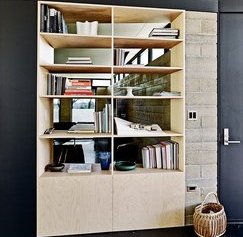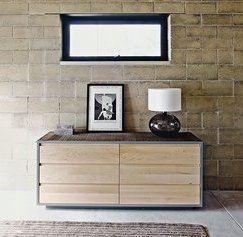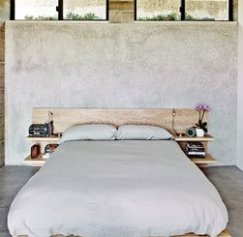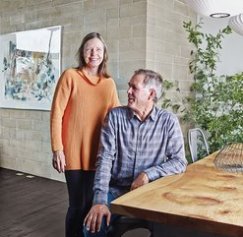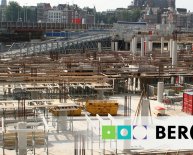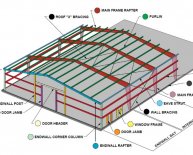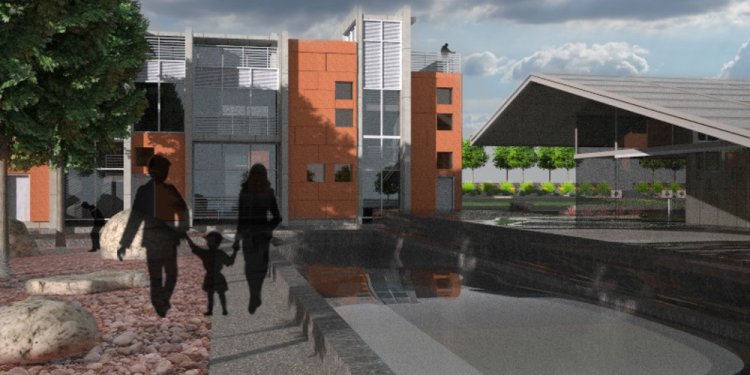
New building Construction methods
David Easton, a pioneer in neuro-scientific rammed-earth building, developed durable blocks made from recycled and waste and utilized them to construct a property for himself and his partner, Cynthia Wright, in collaboration with designer Juliet Hsu.
Picture by Ian Allen"a relatively inexpensive rammed-earth household had been my unrealized fantasy, " Easton says, "until it dawned on myself that a much better concrete block—one of the very most typical building elements on the planet, but made from earth that one could get and lay collectively to make a wall—could be more effective for modern building."
Edward De Reza of Watershed Materials makes use of a pump to fill obstructs with concrete grout, which works together reinforcing metallic to shore up the walls of the property.
Photo by Ian AllenEaston immediately began Watershed products, a business which makes lithified blocks, bringing the thermal, ecological, and aesthetic benefits of rammed-earth homes attainable of more and more people by bypassing the costly molds generally speaking found in this sort of building.
Bricks are constructed of stone, gravel, clay, and silt from a classic quarry close to the building website.
Photo by Ian AllenDue to the expertise of designer Joe Dahmen and materials scientist Jose Muñoz, just who cofounded Watershed with Easton, the eco-friendly blocks are constructed of recycled and spend and tend to be because affordable, powerful, and functional as typical cement obstructs.
Beyond the gas hearth by Spark Fires, a Ball pendant lamp by George Nelson hangs over a custom cedar dining table inside dining location.
Picture by Ian Allen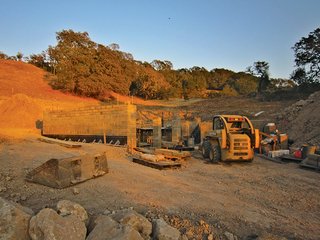 "At first, we did not believe we had been going to live here, " Easton recalls, but given that experimental three-bedroom, two-story residence took form, Easton along with his spouse, Cynthia Wright, couldn’t withstand. They decamped from their sprawling, almost two-decades-old French-style rammed-earth farmhouse, a few kilometers away, and moved in.
"At first, we did not believe we had been going to live here, " Easton recalls, but given that experimental three-bedroom, two-story residence took form, Easton along with his spouse, Cynthia Wright, couldn’t withstand. They decamped from their sprawling, almost two-decades-old French-style rammed-earth farmhouse, a few kilometers away, and moved in.
A birch-ply bookcase, created by Juliet Hsu with input from Wright, stands when you look at the family area and it is one of many custom fixtures.
Picture by Ian Allen"it had been a chance to encounter Watershed blocks close up and determine just what residing small modern-day structure believed like, " Easton says. Juliet Hsu, a designer and Easton’s daughter-in-law, separated your house into two rectangular wings—one for each side of a normal gully—connected on main amount by a stylish steel-and-glass connection that houses residing spaces with bay views looking west; there’s a sheltered deck in straight back.
The planet earth bricks are a prominent artistic element in the master suite, that is furnished with a bureau from place & Board.
Photo by Ian AllenIn lots of ways, this essentially prefabricated construction echoes Frank Lloyd Wright’s idealized midcentury Usonian household, which he defines in the book The Natural House as being "integral to its site, fundamental to its environment, integral into lifetime of the inhabitants."
The master suite sports a custom birch bed.
Picture by Ian Allen"Our Watershed obstructs are manufactured from regional raw material to embody the character associated with the area, " Easton describes. As an example, the tripartite southwest-facing structure which their brand-new home—which is walking length of main Napa—tucks neatly into a hillside lot with the exact same kinds of rock, gravel, clay, and silt which were utilized, under high compression, to make the blocks. The ingredients originated in an old quarry just two kilometers away, adjacent to an adult one in which stones for Napa County’s bridges had been mined almost a century ago. "the method has evolved through the years, from making use of web site soil for wall building to your usage of quarry by-products, ” Easton claims. “And proximity aided to reduce our carbon footprint, too."
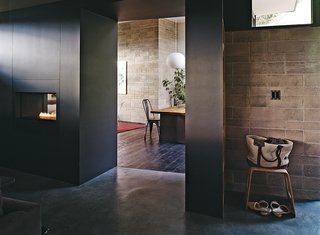 Easton and Wright in their dining area. The redwood floors in the living and dining rooms continues on the deck.
Easton and Wright in their dining area. The redwood floors in the living and dining rooms continues on the deck.
The blocks are eco-friendly and economical various other ways and. Fused as well as a matching mortar, they might require no surface finishes inside or away, and, due to their thick thermal mass, they need no synthetic insulation. Thanks to the hygroscopic quality of our planet in their material composition, Watershed’s blocks become reservoirs that absorb excess humidity when it’s damp outside and release it on drier times.
The deck functions as a vantage point for admiring the California lilacs, manzanitas, and other indigenous flowers regarding home.
Picture by Ian AllenAccordingly, the rock-hard, obviously colored blocks tend to be many prominent on reduced floor in Easton’s partially sunken master bedroom, pressed up against the hillside. Consequently, stones which were displaced during excavation were used again for terracing and to result in the existing gully between your wings of your home look naturalistic.
Hill See Residence Floorplan
A Family Place
B One Half Bathroom
C Home
D Living Room
E Living Area
F Deck
G Room
H Bathroom
I Garage
J Pantry
K Master Suite
L Dresser
M Study
Picture by Ian Allen"Winter runoff moves through our channel, under the connection, " Easton says, while water—warmed by an on-demand natural-gas heater and distributed via pipes within the concrete floors and under reclaimed old-growth redwood floors when you look at the family room— products radiant-heat.
Also on many scorching amount- mer days, your home keeps steady at 74 degrees without air-conditioning. Dense wall space maintain the house cool; deep roofing overhangs—assembled off-site and craned into place—provide shade; and large clerestory windows enable cross-ventilation on unusual occasions if the interior requires quick air conditioning.
"obviously, for a passively cooled household, you will need the active involvement of the occupants, " Easton states. "to help keep sunshine as well as heat aside, we keep doors closed throughout the day, and available them when you look at the nights to eliminate any extra temperature collected inside walls."
"Comfort is a mental state, " Easton claims. "In cold temperatures, when feet are warmed by in-floor heating, people immediately feel safe, in spaces since cool as 66 levels, ” that will be in which they put the radiant-heat thermostat. World buildings also provide an alternate audio quality that feels cocooning. it is perhaps not the type of tough research Easton relies on for Watershed block formation, but he's sure dinner visitors linger at the table “because they feel comfortable con-versing. Rammed-earth blocks absorb sound this kind of a soothing means."
